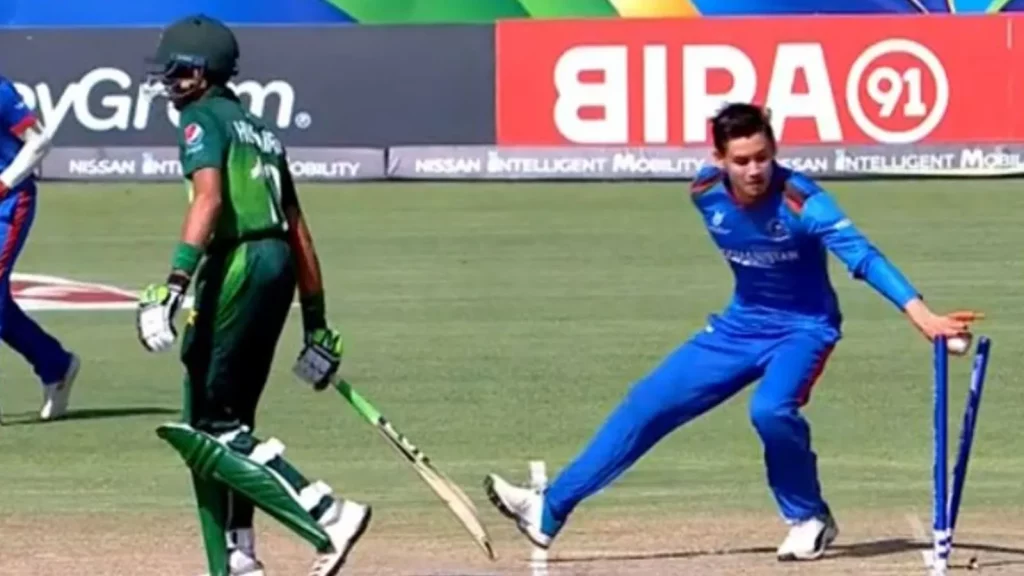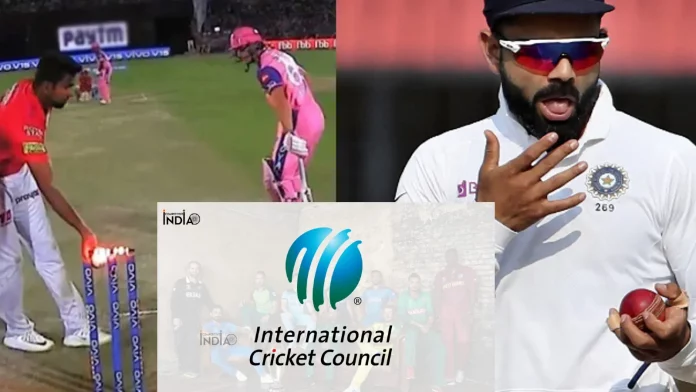With only 25 days left for the Twenty20 World Cup, International Cricket Council has made massive changes in cricket rules. An announcement had been made regarding the significant rules on September 20.
Also Read: ICC Media Rights: Star Sports Bags The Multi-year Deal
The New ICC Rules in Detail
1. After a catch dismissal new batter will start from the striker’s end
As per the new rule, after a catch dismissal, the new batter will start from the striker’s end, even if the batters crossed before the catch was taken. However, this adjustment was earlier executed during the Hundred in England, the new rule will come into force on October 1. Hence, the regulation will come into effect for the impending T20 World Cup.
“When a batter is out caught, the new batter will come in at the end the striker was, regardless of whether the batters crossed prior to the catch being taken,” -The ICC
2. Ban on use of saliva to polish the ball

The use of saliva to polish the ball will no longer be tolerated by the ICC. Considering the COVID-19 outbreak, the practice was temporarily outlawed and now is completely banned.
“The ban on saliva use has been in place for over two years in international cricket as a Covid-related temporary measure and it is considered appropriate for the ban to be made permanent,” an ICC statement said.
3. Restrictions on slow-over rates in ODI
By the advice of the Melbourne Cricket Club (MCC), the ICC implemented restrictions on slow-over rates in one-day international matches. This rule was earlier only followed in the T20 format of the game. This states that if the teams don’t bowl their entire 50 overs in the allotted time will be forced to bring an extra player inside the circle for the rest of the innings.
4. No deliberate movement by fielders during the bowler’s run-up
This rule states that if any fielder makes an unfair or deliberate movement while the bowler is in his run-up, the batting side will be awarded five penalty runs.
5. Use of hybrid pitches
The ICC has now allowed the use of hybrid pitches in all men’s as well as women’s T-20I and ODI cricket. Hybrid pitches are a blend of natural grass and artificial turf wicket. Moreover, it has only been used in women’s T-20I games.
6. ‘Mandaking’ no longer “unfair play”

According to the revised set of rules, running out of the non-striker whilst he/she is backing up will no longer be considered an “unfair play”. This type of wicket is called ‘Mandaking‘, named after Indian International Cricketer Vinoo Mankad. Mankad was the first person to ever practice this type of wicket.
When will the new rules come into play
After the meeting held amongst the ICC chief executives’ committee approved the rules and they will come into force from October 1. Hence, the upcoming World Cup will be the first major event to witness the revised rules.
Also Read: Check out all the ICC Men’s T20 World Cup Squads

